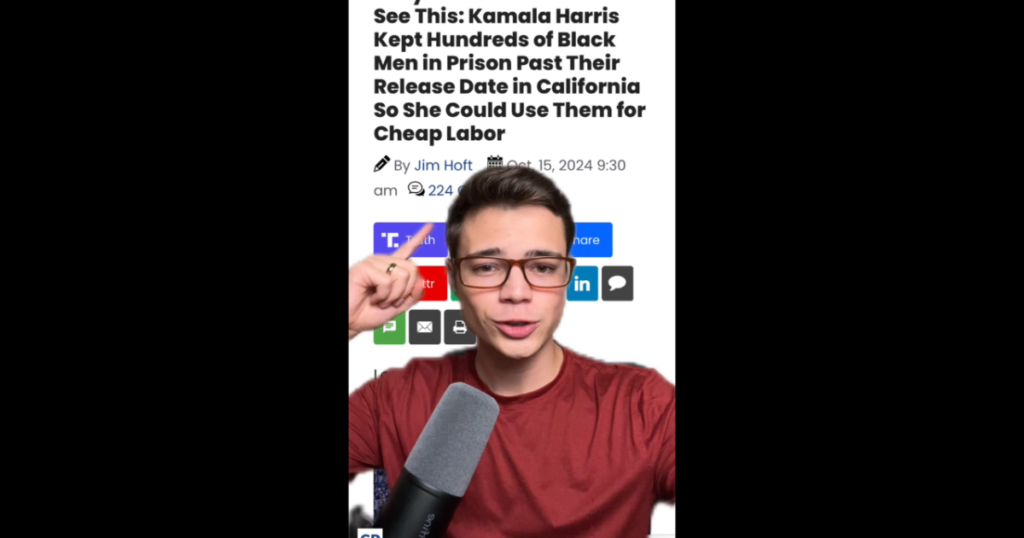As the upcoming election approaches, it’s essential to revisit some controversies surrounding Kamala Harris’s tenure as California’s Attorney General. Reports have surfaced accusing her of prolonging the imprisonment of hundreds of individuals, particularly black men, beyond their actual release dates. The motivation behind this alleged policy was reportedly to exploit these individuals as a source of cheap labor for the state. Such actions, primarily characterized by extending prison sentences for economic gain, raise significant ethical questions and have sparked outrage among critics who believe this practice resembles forms of modern slavery rather than a commitment to justice and rehabilitation.
A particularly damning revelation highlighted in a February 2019 piece by Jackie Kucinich in The Daily Beast illustrates this situation. Amid a directive to reduce California’s overcrowded prison population, Harris’s office argued that non-violent offenders should remain incarcerated to maintain a reservoir of cheap labor. This stance came in the wake of the 2011 Supreme Court ruling in Brown v. Plata, which deemed California’s overcrowded prison conditions unconstitutional. Following this ruling, the state faced increased pressure to reevaluate its incarceration policies, particularly for non-violent and low-risk offenders.
In the aftermath of the Supreme Court ruling, California was mandated to allow eligible non-violent offenders, particularly those with prior convictions who had served half their sentences, the possibility of parole. However, the state’s legal representatives, under Harris’s leadership, found themselves in court by September 2014, facing accusations of deliberately delaying this process. Critics pointed out that Harris’s office prioritized maintaining the prison labor program over the rights and rehabilitative prospects of incarcerated individuals.
The implications of these policies extend beyond mere legalities; they speak to larger systemic issues within the prison-industrial complex in the United States. Critics argue that the use of cheap prison labor perpetuates a cycle of economic exploitation akin to slavery. Inmates, who often receive a mere $2 per day for their labor, are undermined and dehumanized within a system that profits from their incarceration. Proponents of criminal justice reform argue that such practices should have disqualified Harris from public office long before her candidacy for the presidency.
These revelations have surfaced against a backdrop of escalating societal issues, including rising crime rates and challenges at the southern border. As Americans grapple with these pressing concerns, many believe that leaders should be held to a higher standard, especially regarding their commitment to justice and rehabilitation within the penal system. The allegations against Harris represent a significant failure to prioritize the well-being of individuals over economic interests, drawing attention to the urgent need for reform in how prisons operate and how inmates are treated.
In conclusion, the controversial practices attributed to Kamala Harris during her tenure as Attorney General pose critical questions about ethics, accountability, and the integrity of leaders within the political system. As the election nears, it’s vital for voters to be informed about these issues and consider their implications for a future administration. The intersection of race, labor exploitation, and the criminal justice system remains a contentious topic, and Americans deserve leadership that prioritizes justice, fairness, and the humane treatment of all individuals within the penal system.

